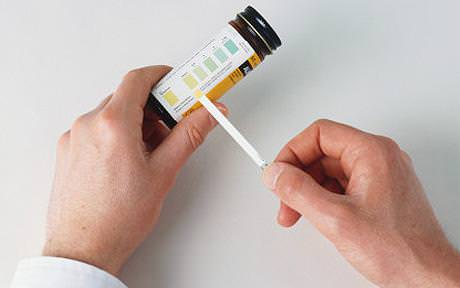A simple urine test to detect HPV in women could increase cervical cancer screening rates by replacing ‘invasive and time-consuming’ smear tests, according to scientists.
Human papillomavirus (HPV) is one of the most common sexually transmitted infections. Up to 80 per cent of sexually active women are infected at some point in their lives and infection with specific “high risk” strains of HPV has an established link to cervical cancer.
Current screening by cervical cytology (smear test) is invasive and time-consuming – and in recent years, cervical screening in the UK has fallen below 80 per cent, particularly amongst women aged 25-30.
Several studies have suggested that detecting HPV in urine may be a feasible alternative to cervical sampling, but the accuracy of such a test is still uncertain.
In a study published on bmj.com, a team of researchers based in London and Spain, led by QMUL’s Dr Neha Pathak, analysed the results of 14 studies involving 1,443 sexually active women to determine the accuracy of testing for HPV on urine samples compared with cervical samples obtained by a doctor. The quality of the studies was generally high.
Compared with cervical samples, urine HPV testing had an overall sensitivity of 87 per cent (the proportion of positives correctly identified) and a specificity of 94 per cent (the proportion of negatives correctly identified). Urine testing for “high risk” HPV types 16 and 18 (those that cause the majority of cervical cancer cases) had an overall sensitivity of 73 per cent and a specificity of 98 per cent compared with cervical samples.
Accuracy increased when “first-void” urine samples were collected (the first urine of the day) compared with random or mid-stream samples, probably because first void urine samples contain higher levels of DNA.
“The detection of HPV in urine is non-invasive, easily accessible, and acceptable to women, and a test with these qualities could considerably increase uptake,” say the authors.
They stress that their results should be interpreted with caution “due to variation between individual studies” but say that when HPV testing is considered for cervical cancer screening, “urine-based testing should be considered as an accurate and acceptable alternative that could increase screening coverage”.
They propose that testing urine for HPV “could accurately replace cervical testing for HPV in this context” and call for further studies and a “standardised method of urine HPV detection” to be developed.
In an accompanying editorial, researchers at the University of Manchester say urine testing for HPV is a promising screening option that deserves further evaluation.
In well resourced health systems, they suggest self sampling “could be used for women who are reluctant to attend for regular cervical screening”. While in lower income countries that lack infrastructure, “self sampling might even be beneficial and cost effective for all women who are eligible for screening”.
More research is now required to identify the true clinical performance and acceptability of urine testing for HPV in both settings, they conclude.
Agencies/Canadajournal
 Canada Journal – News of the World Articles and videos to bring you the biggest Canadian news stories from across the country every day
Canada Journal – News of the World Articles and videos to bring you the biggest Canadian news stories from across the country every day



